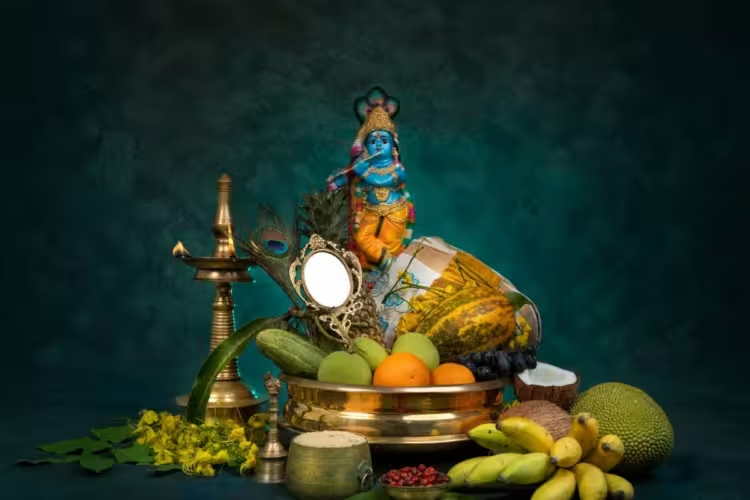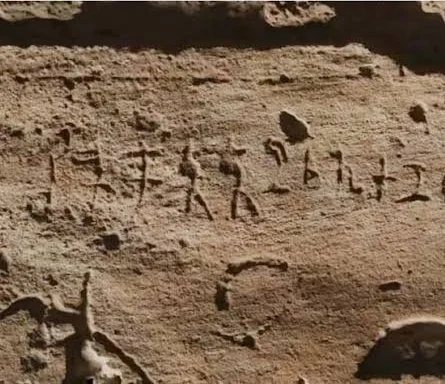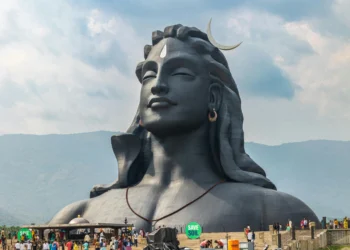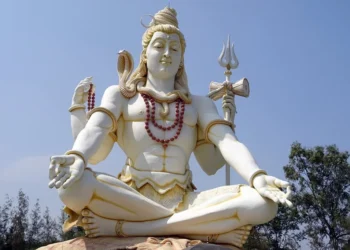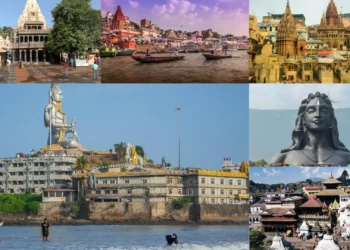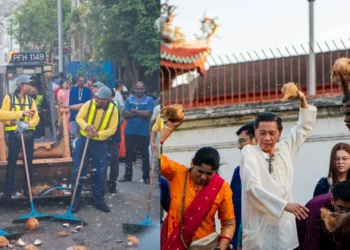Vishu, the traditional New Year festival of Kerala, is a vibrant celebration steeped in culture, spirituality, and ancient traditions. Marking the beginning of the Malayalam calendar, Vishu holds immense significance for the people of Kerala and Malayalis all around the world. From the exquisite Vishukkani arrangement to the mouthwatering Sadhya feast, every aspect of Vishu is a reflection of the rich cultural heritage of this southern Indian state.
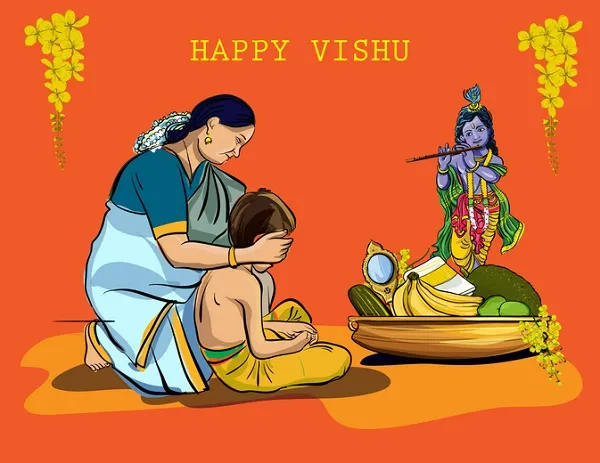
The origins of Vishu can be traced back to ancient agricultural practices and astronomical observations. Vishu falls on the first day of the Malayalam month of Medam, typically in April as per the Gregorian calendar. Vishu is celebrated with great fervor as it signifies the onset of a new agricultural season and brings hope for a prosperous year ahead.
Vishukkani: The Auspicious Sight
One of the most iconic traditions of Vishu is the Vishukkani, which translates to “the first sight of the year.” It is believed that witnessing auspicious items as the first sight on Vishu morning brings blessings and prosperity for the entire year. The Vishukkani arrangement typically includes an idol of Lord Krishna, fresh flowers, fruits, vegetables, rice, gold coins, and a mirror, all displayed in front of a traditional lamp. Family members wake up early to see the Vishukkani arranged by the eldest member of the household. The sight of Vishukkani fills the hearts of devotees with joy and optimism, setting a positive tone for the year ahead.
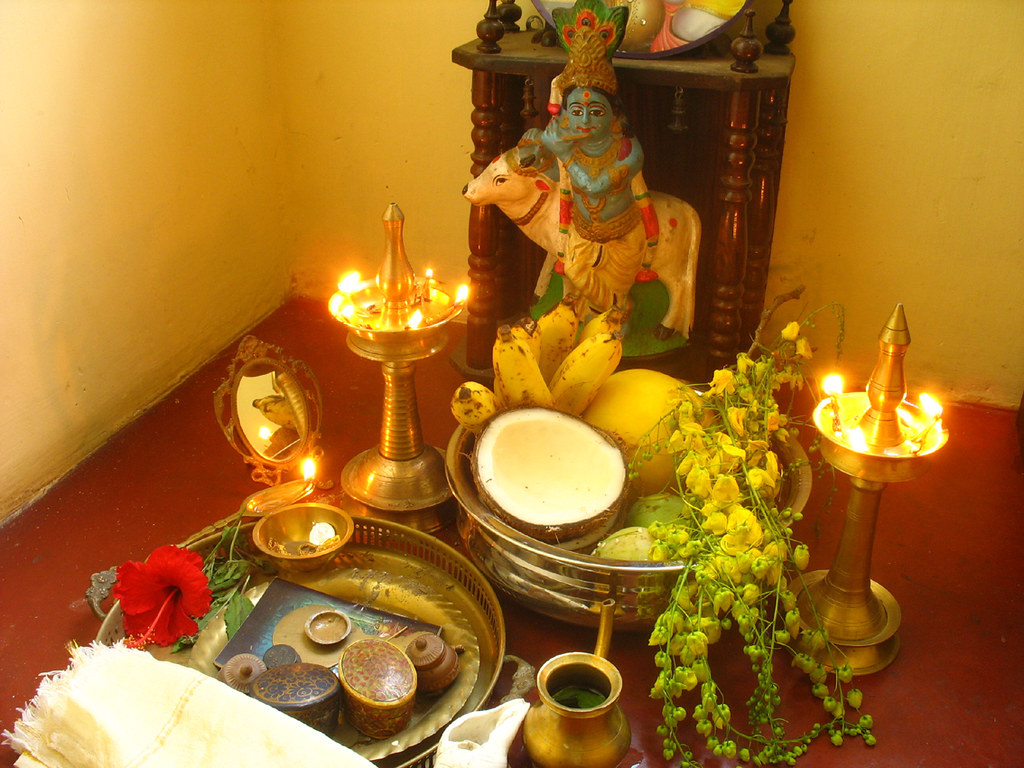
Vishu Sadhya
The Vishu Sadhya holds a special place in the hearts and palates of those celebrating Vishu. This grand feast, served on a banana leaf, is a culinary extravaganza that showcases the diversity and richness of Malayalis’ vegetarian cuisine. The feast usually includes traditional Kerala dishes such as Avial, Thoran, Sambar, Rasam, and Pachadi, among others. Each dish is meticulously prepared with fresh ingredients and aromatic spices, embodying the culinary expertise of Kerala’s rich culinary heritage.
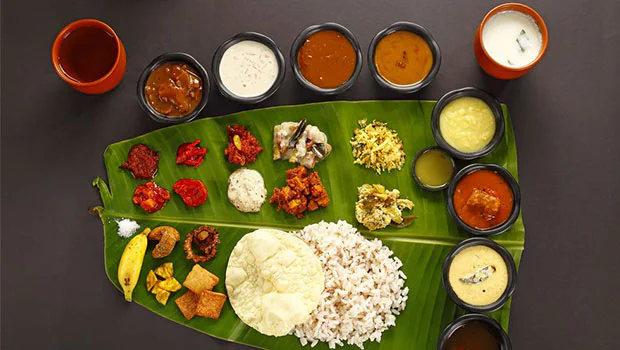
Spiritual Significance
Amidst the vibrant celebrations of Vishu, there lies a deeper spiritual essence that enriches the hearts and minds of the Malayali community. Beyond the external festivities and merriment, Vishu serves as a sacred opportunity for introspection, gratitude, and spiritual renewal.
Devotees embark on a journey of inner reflection, contemplating the events of the past year and expressing gratitude for the blessings received. It is a time to acknowledge the divine providence that has guided them through life’s challenges and triumphs, fostering a deep sense of appreciation and humility. Central to the spiritual significance of Vishu is the act of seeking blessings from the divine. Devotees flock to temples, seeking solace and guidance from the revered deities.
Community Bonding and Unity
Vishu serves as a unifying force, bringing people together in a spirit of harmony and togetherness. It creates a sense of belonging and strengthens the bonds between family members, friends, and the wider community. During this festive occasion, individuals set aside their differences and come together to celebrate, embracing the essence of unity and solidarity. Families eagerly anticipate Vishu, as it provides an opportunity for reunion and bonding. Loved ones gather to partake in traditional rituals, exchange heartfelt greetings, and share in the abundance of joy and happiness. The atmosphere is filled with laughter, warmth, and affection as people cherish the moments spent in each other’s company.
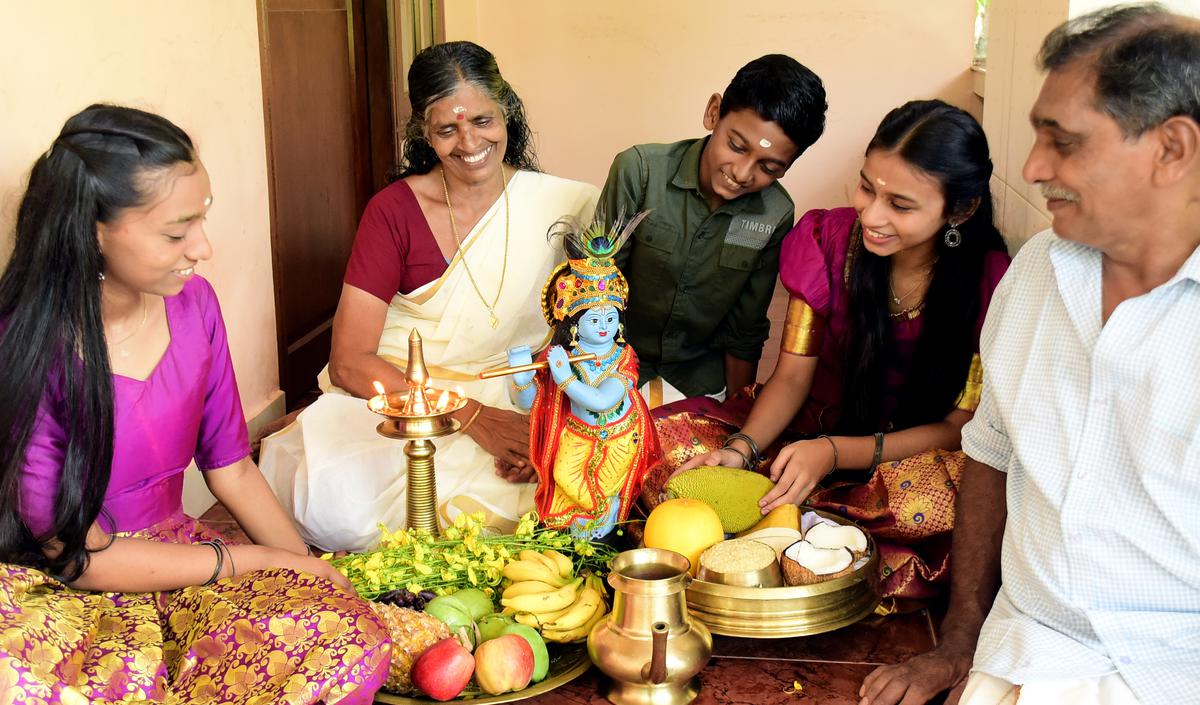
Moreover, Vishu transcends geographical boundaries, serving as a thread that connects Malayalis across the globe. Regardless of their location, individuals from diverse backgrounds join in the festivities, celebrating their shared cultural heritage and traditions. Through virtual gatherings, phone calls, and social media exchanges, the spirit of Vishu permeates through homes and communities, fostering a sense of belonging and connection.
Source: Hindustan Times
Follow us on Instagram, Facebook or Telegram for more updates and breaking news.


